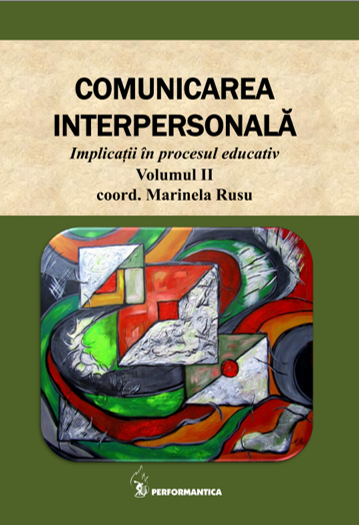
We kindly inform you that, as long as the subject affiliation of our 300.000+ articles is in progress, you might get unsufficient or no results on your third level or second level search. In this case, please broaden your search criteria.


Communication represents a process of interaction between people, groups, as a relation mediated through word, image, gesture, symbol or sign. Through it, individuals share their knowledge, experiences, interests, attitudes, feelings, opinions, ideas. Viewed as a process, communication consists in transmission and exchange of information (messages) between individuals. Communication means to tell those around you who you are, what you want, why you want a certain thing, and what are the means you will use to achieve your goals. Communication is defined as “a process through which a transmitter sends information to the receiver through a channel, in order to produce certain effects on the receiver.” In the present paper we analyze the most important types of communication: intrapersonal communication, interpersonal communication, small group communication, public communication / in organizations and mass communication. The success of communication in organizations depends on its manager, who must be a true manager of his organization's communication system, and this requires a continuous effort on his part in accumulating knowledge and training skills in organizational and interpersonal communication
More...
A teacher-psychologist in an educational institution performs a variety of functions: education, prevention, counseling and correctional and developmental work. However, sometimes in the process of work, specialists are faced with prejudice from both colleagues and pupils (schoolchildren or students).
More...
The lack of free time, the large number of tasks, the busy regime often lead to a personal imbalance of social workers, which results in their professional burning. Known as the burnout phenomenon, burnout has a negative impact on the mental state, relationships with family, colleagues, and the quality of work. This article reflects one of the biggest problems facing social workers today, namely overwork at work and in their free time. The research of professional burning among social workers highlights the reasons and consequences of this phenomenon, which will help reduce its impact on well-being, quality of work, organizational climate.
More...
Improving school leadership is now high on the list of priorities for school reform. Principals are considered key actors responsible for the successful management of all administrative functions of schools. They bear a great responsibility for maintaining the effective internal functioning of school systems, representing the schools in the community, and implementing educational policies. Principals also act as role models who promote the ethical and professional growth of teachers and other professional staff. Ultimately, school leaders have an indirect but significant impact on student learning and achievement. The purpose of this exploratory study was to determine the social representation of competencies needed for an effective school principal to manage the administrative and instructional process. The participants were 119 female teachers who teach at the elementary level. A standardized task based on the free association method was used to collect data. Participants’ responses were analyzed lexically and semantically to differentiate associations from a qualitative perspective. The structural approach based on the analysis of prototypical categories was also used. The qualitative and quantitative analyzes revealed three facets of teachers’ representation of the competencies of a successful school leader. These dimensions included: a) the mission and basic competencies of a school leader; b) managing interpersonal relationships; c) skills, attitudes, and motivation for managerial career.
More...
Parent education is one of the main concerns of the school counselor. In order to alleviate the problems that appeared in the lives of young people at the time of graduating high school, so that he no longer appears as an individual who oscillates between safety and uncertainty, we initiated the Parental Counseling Program: The future graduate between safety and uncertainty.
More...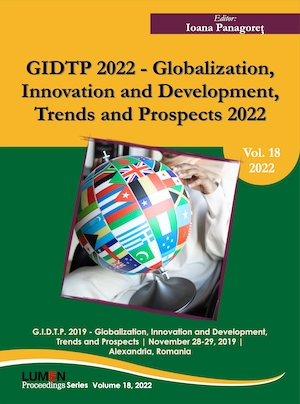
The use of information technology in the activity and professional development by the teachers represents an extinguished necessity of the current stage. The new technologies come to the aid of the teacher, in the exercise of his profession. Using them makes the teacher's work more efficient, it helps him save time and space in making the necessary documents for carrying out, in good conditions, the activity. The development of information technologies has boosted the professional training of teachers for the use of TIC tools. Traditional teaching methods are not replaced by technology, but this can improve both the course material and the relationship between students and the teacher. Educational institutions must take advantage of the opportunities offered by technology and create programs, special software to offer the student an interactive, rich and varied learning experience. Technology is everywhere around us, and this must determine us, those responsible for the educational act in schools, to change the way students assimilate information during class hours.
More...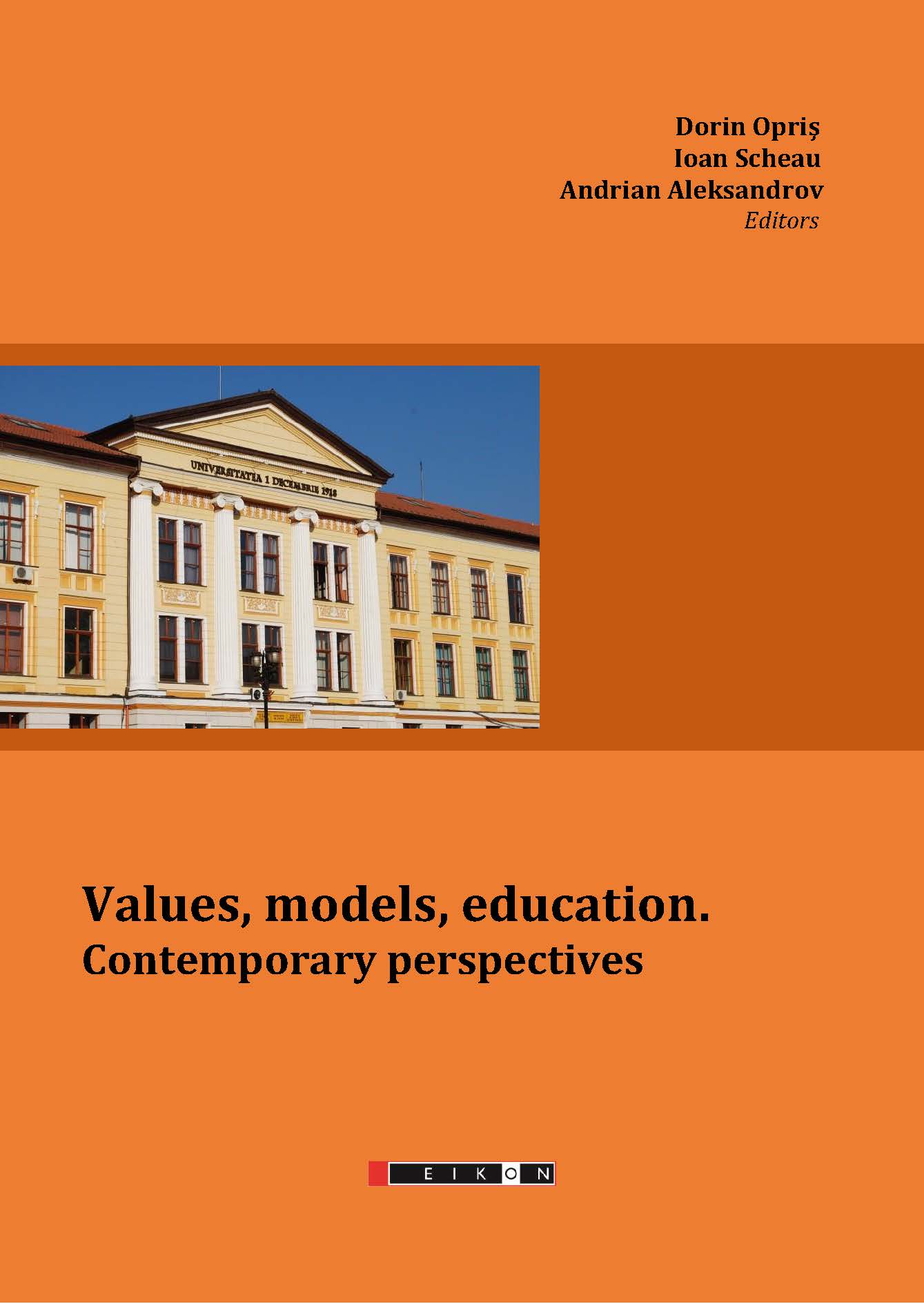
Abstract: The kindergarten and the family have an essential role in the harmonious development of the child. It is very important to have a close connection between the kindergarten and the child's family to be able to work together on his development. The kindergarten must always collaborate with the child's family, because the parents must be considered partners by the educator in the children's education, in the process of their development. Between the kindergarten and the family, there must be a permanent relationship of collaboration, which should be maintained through the realization of the educational partnership between the kindergarten and the family. The kindergarten-family educational partnership has an important role in the child's development, because through the activities within it, pluses are brought in the child's development. Both the kindergarten and the family have their well-established role in the kindergarten-family partnership and each one tries to do his part to be able to achieve something for the good of the children together, because this is the common goal of the two educational environments, that of working together on children's development, and to train him to be able to integrate into society. Therefore, the collaboration between the kindergarten and the family has a very important role in the harmonious development of the child. Keywords: collaboration; development; kindergarten; family; child.
More...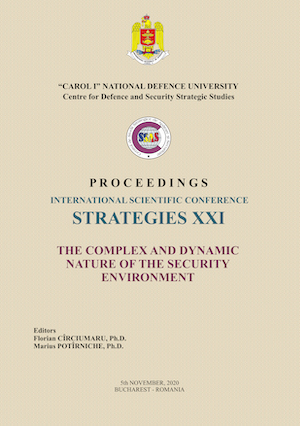
Cybersecurity is one of the new dimensions of security, the one responsible for ensuring a secure online space, a space which can be used safely in all areas of people’s lives - from finance to social media, education, economy, politics, information, debate and even military. Because over 50% of the population is connected in 2020 to the internet, both for work and personal purposes, as numerous transactions are being registered in the cyberspace every second, government and private sector alike need to work together to secure this space to develop early-warning systems and protect the IT infrastructure of any kind of attacks. There are tools for measuring and monitoring cyber-attacks, which need to be explored and constantly improved. But this is not enough as the use of these tools needs to be completed by the joint efforts in raising the users’ awareness in protecting against any attacks. Additionally, exploring and taking advantage of the benefits a digital economy and society can offer should be supported by investments in education and training while maintaining an updated and secure infrastructure.
More...
The paper discusses the importance of training for the success of Romania’s contribution to the Common Security and Defence Policy (CSDP) of the European Union. At the time when the EU Member States are taking concrete measures to implement the European Compact for a Civilian CSDP (2018) and the second annual progress report is planned, Romania is still struggling with the inter-institutional negotiation of the would-to-be National Strategy for the Implementation of the Civilian CSDP Compact, not yet approved by the Government. However, training is not seen as a strong point in the future strategic document, probably because there is not real coordination in the field. Despite the increased interest in CSDP related training (the number of the Romanian members of the European Security and Defence College multiplied five times in just two years), the training institutes are not working in a coordinated way and most of their CSDP training seems mostly related to individual projects or targets and not following a national policy, nor national objectives related to the Civilian Compact implementation. The debate opened by this paper aims to increase the awareness at the national authorities’ level and to suggest the way ahead in liking training to the Romanian policy on CSDP.
More...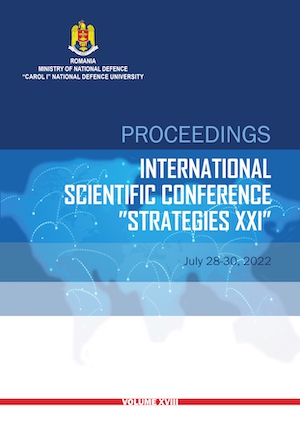
We argue that the principles and practices specific to the performance management can be used as levers in the education system and in the professional training of military personnel, especially in the higher military education system. We will focus particularly on the most important aspects of performance management: planning and goal setting, monitoring, evaluation and feedback. Beyond the conceptual aspects, we will discuss the implications that these practices have on the teaching-learning process and we will highlight their value in the military academia by elaborating on how they can be applied in three problematic situations. Thus, this article provides teachers and instructors in the military education system with learning-oriented methods that will create a productive classroom environment and highlights the opportunities that students have and the benefits at the institutional level.
More...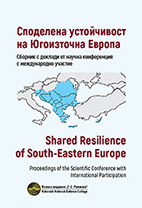
The report analyzes the characteristic features of the combat space for conducting unconventional warfare (Irregular Warfare-IW), taking into account the changes and peculiarities in the specifics and characteristics of combat actions at the current stage of the development of armed conflicts in different regions. By using the forms and approaches of intelligence anal-sis and taking into ac-count the requirements of the four successive stages of the intelligence cycle, the methods and ap-proaches are formulated for using the potential of the types of technical intelligence and of intelli-gence using the human factor in the interest of obtaining and interpreting information correspond-ing in volume and direction in the interest of the objectives and tasks of unconventional warfare (IW). The systematization of the obtained analytical assessments ensures the determination of the role and effects of conducting information and psychological operations with the use of modern information technologies in the preparation and implementation of unconventional combat actions (IW). The requirements for the specialized training of the analyst teams, performing analysis and evaluation of the obtained specific information regarding the characteristics of the unconventional battlefield and preparing the final intelligence product, have been determined in order of im-portance.
More...
The importance of innovation activity for modern development has been examined and the main concepts and definitions related to the field of innovation activity have been derived, and based on the achievements of leading researchers in this field, a generalized definition of the term innovation has been proposed. The place and importance of innovation for the defense industry is noted.
More...
The aim of this paper is to describe the main advantages of the application of different types of planar antennas in security based on their design, functionalities, and limitations, considering that they are suitable for various applications such as AM radio (0.5 MHz – 1.6 MHz) and FM radio (88 MHz – 108 MHz), Wi-Fi (2.4 – 5 GHz), Bluetooth (2.4 GHz), control of access through identification systems with radio frequency tags (Radio Frequency Identification (RFID) and mobile data. The analysis of software products for the simulation modeling of a wide variety of microwave devices, including planar antennas, contributes to the correct selection of a product that will satisfy the requirements for the credibility of the research and the reliability of the generated results.
More...
The text discusses aspects of the emergence of geopolitics as a theory based on the synthesis of knowledge from history, geography and political science. Attention is paid to the geopolitical dimensions of national state power. It briefly defines what constitutes great (great powers), middle and weak states and their role in global politics. The elements characterizing the national power of a country are mentioned. A brief definition of military conflict is defined, as well as expectations of what types of military conflicts will eventually be fought in the world. A proper assessment of the country's place, interests and capabilities in the new security environment is presented as a basis for making the right choices.
More...
The paper presents a review of counter drone measures in contemporary warfare. An emphasis is put onto small and tactical UAVs. Open sources freely available over Internet are used for the review. The conclusions are made in order to suggest the adoption of such know-how in Bulgarian armed forces
More...
The transition from an industrial and post-industrial economy to the so-called "digital economy" or an economy based on the networked use of information and communication technologies at the beginning of the 21st century has been considered as a major factor for economic growth. The overall construction of a digital ecosystem within global and national economies has been assessed as a significant component of economic development and an institutional basis for sustainable growth, competitiveness and a high standard of living. The formation is traced and a generalized definition of the concept of "digital economy" is given, and the leading role of information and communication (digital) technologies in the modern economy is emphasized.
More...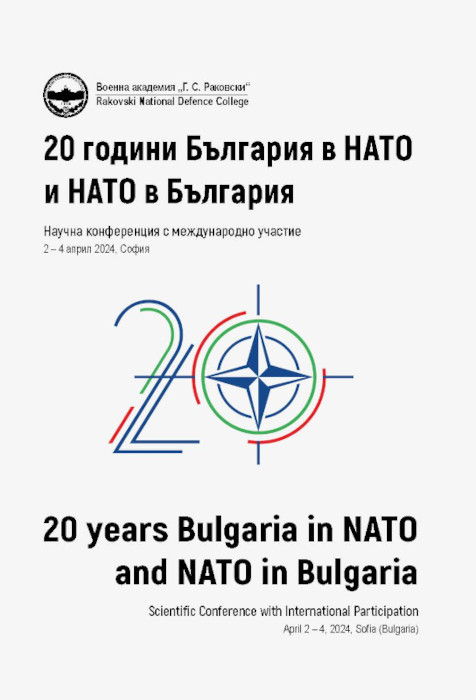
The report presents the main problems of planning, construction and functioning of the system of engineering enclosures in modern conditions. Specific terms and views related to the planning and construction of engineering enclosures are presented. The purpose, principles and requirements for engineering enclosures are examined and the main functions and responsibilities of the commanders for planning, building and functioning of the system of engineering enclosures are formulated.
More...
The report examines the objectives and tasks of the engineer troops involved in unexploded ordnance clearance activities. The types, methods and organization of these activities are revealed. The sequence and the main requirements for this type of activities are presented in order to achieve good productivity and efficiency on the one hand and improvement of personnel safety on the other. Ammunition clearance is considered as a process of sequentially obtaining information and subsequent clearing of a certain area of ammunition.
More...
The report examines the growing role of cyberspace as a fifth domain of military action and political confrontation. An overview of the main definitions of the concept of „cyberspace“ based on normative and strategic documents was made. Its hierarchical levels are distinguished. The main threats in cyberspace and their resonance in security and defense are laid out. It is concluded that digitization will become an increasingly important factor in military affairs, turning cyberspace into an operational environment and a new theater of military operations that is not limited by geographical boundaries.
More...